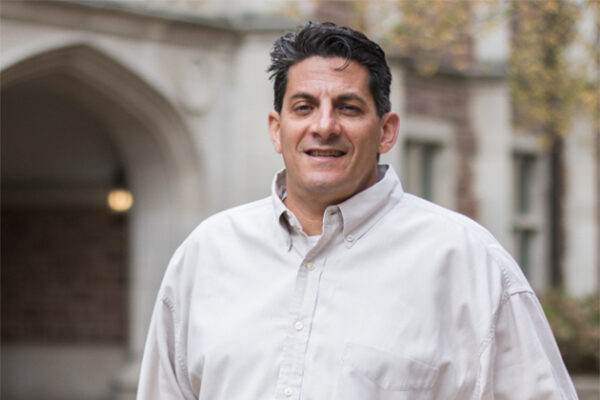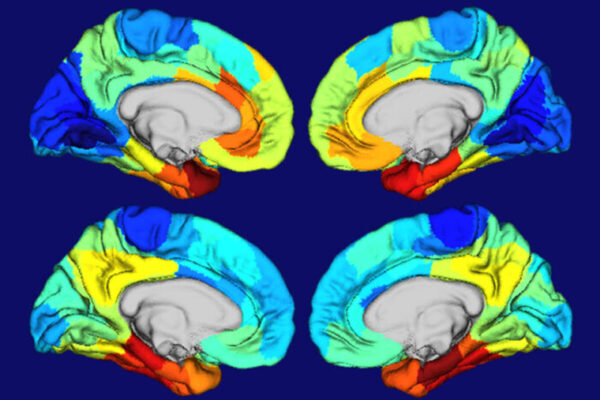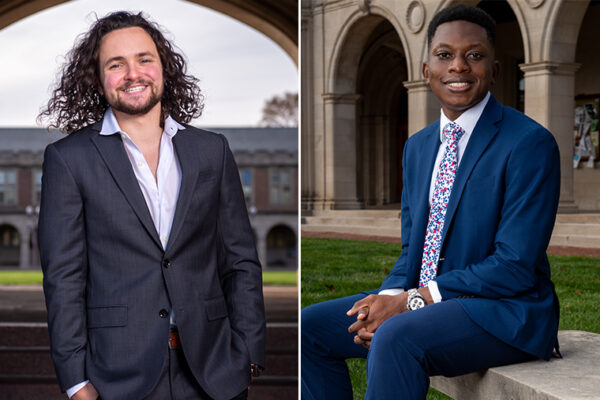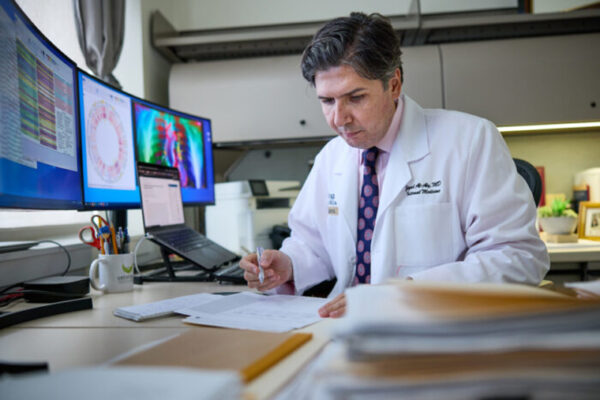Braver receives NIH award to study aging effects
Todd Braver, a professor of psychological and brain sciences in Arts & Sciences, received a $442,135 grant from the National Institutes of Health (NIH) to study aging effects on the neural coding of proactive and reactive cognitive control.
Lung infections caused by soil fungi are a problem nationwide
School of Medicine researchers discovered that the three main kinds of soil fungi that cause lung infections have all expanded their ranges in recent decades. Reliance on outdated maps could be causing delayed or missed diagnoses.
Study yields clues to why Alzheimer’s disease damages certain parts of the brain
A study by researchers at Washington University School of Medicine yields clues to why certain parts of the brain are particularly vulnerable to Alzheimer’s damage. It comes down to the gene APOE, the greatest genetic risk factor for Alzheimer’s disease.
Norwitz, Oyetunji were Rhodes Scholar finalists
Seniors Sam Norwitz and Ephraim Oyetunji, both majoring in neuroscience in Arts & Sciences, were finalists for the Rhodes Scholarship, one of the world’s most prestigious academic honors.
Suicide prevention training teaches users to recognize, respond to suicidal behavior
QPR training, a nationally recognized suicide prevention program, is now available to all students, faculty and staff at Washington University. Kirk Dougher, associate vice chancellor for student support and wellness, likens QPR to CPR — an emergency response that saves lives.
COVID-19 widened health disparities in employment, food
A deep dive by researchers at Washington University School of Medicine and the Brown School found gaping health disparities resulting from the COVID-19 pandemic. The study, which looked at St. Louis County residents, shows that Black women suffered disproportionately higher rates of employment loss and food insecurity.
Repeat COVID-19 infections increase risk of organ failure, death
A new study from Washington University School of Medicine and the Veterans Affairs St. Louis Health Care system found that repeat SARS-CoV-2 infections contribute significant additional risk of adverse health conditions in multiple organ systems.
Rejuvenated immune cells can improve clearance of toxic waste from brain
Rejuvenating the immune cells that live in tissues surrounding the brain improves fluid flow and waste clearance from the brain — and may help treat or even prevent neurodegenerative diseases such as Alzheimer’s and Parkinson’s, according to a study by researchers at Washington University School of Medicine.
Stark receives $435,000 UNICEF grant
Lindsay Stark, a professor at the Brown School, has received a one-year $435,000 grant from UNICEF for a project titled “Intervention Review and Implementation Research to Address Gender-based Violence in Emergencies.”
Researchers bring Body U to schools with HHS grant
The U.S. Department of Health and Human Services has awarded researchers Ellen Fitzsimmons-Craft and Denise Wilfley a grant to help improve outcomes for eating disorders in adolescent girls.
Older Stories









